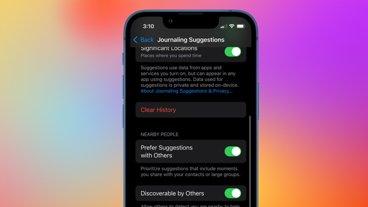Former Apple marketing manager describes company's 'controlled leaks'
John Martellaro provided an analysis for The Mac Observer this week, giving insight into how Monday's leak on the tablet might have been given to The Wall Street Journal. Earlier this week, the paper reported that Apple will unveil its touchscreen tablet this month, and release it for sale in March.
According to Martellaro, the story "had all the earmarks of a controlled leak." As a former senior marketing manager at Apple, he said he was told to leak information in the past.
He said a senior company executive would ask him to release specific information to a trusted person at a major media outlet. Martellaro claims he was asked to "idly mention" the information in a telephone conversation, and to suggest to a reporter that publishing it would be "nice." E-mail correspondence was not allowed.
"The communication is always done in person or on the phone. Never via e-mail," he said. "That's so that if there's ever any dispute about what transpired, there's no paper trail to contradict either party's version of the story. Both sides can maintain plausible deniability and simply claim a misunderstanding. That protects Apple and the publication."
The Journal's top technology commentator, Walt Mossberg, was bypassed, Martellaro alleged, to allow him to remain "above the fray." In addition, the story was leaked late Monday, after the stock market closed, so no one could suggest there was an attempt to manipulate Wall Street.
Martellaro suggested there are a number of reasons Apple could have chosen to leak the information on Monday. They include, in his words:
- to light a fire under a recalcitrant partner
- to float the idea of the US$1,000 price point and gauge reaction
- to panic/confuse a potential competitor about whom Apple had some knowledge
- to whet analyst and observer expectations to make sure the right kind and number of people show up at the (presumed) January 26 event. Apple hates empty seats and demands SRO at these events
While Apple sometimes leaks information to its advantage, it also goes to great lengths to control what is publicly said, and when. Apple's tight-lipped nature was profiled last year by the New York Times, which said the company's veil of secrecy began to take shape around the release of the original Macintosh back in 1984.
One employee said that employees working on secret projects at Apple must "pass through a maze of security doors, swiping their badges again and again and finally entering a numeric code to reach their offices." Once inside the top-secret areas, employees are often monitored by surveillance cameras as they work. Those working with the most sensitive projects are allegedly instructed to "cover up devices with black cloaks when they are working on them, and turn on a red warning light when devices are unmasked so that everyone knows to be extra-careful."
Last month, one report highlighted Apple's supposed "Worldwide Loyalty Team," which are claimed to be a group of moles that spy on people and report directly to co-founder Steve Jobs and Chief Financial Officer Peter Oppenheimer. When an employee is suspected of a leak, the source claimed that they are under a "gag order" that involves the confiscation of cell phones and a total blackout of all unmonitored communication.
 AppleInsider Staff
AppleInsider Staff










 Chip Loder
Chip Loder
 Andrew Orr
Andrew Orr
 Christine McKee
Christine McKee
 Marko Zivkovic
Marko Zivkovic

 Mike Wuerthele
Mike Wuerthele
 William Gallagher
William Gallagher








